- Home
- Jack Campbell
The Lost Stars: Tarnished Knight Page 9
The Lost Stars: Tarnished Knight Read online
Page 9
“Madam CEO,” Akiri said quickly, “I advise against that. Something is not right with C-990. If CEO Kolani is still alive and in charge, some communications should have come to us, even if only defiance. She could try to fire bombardment projectiles at the planet. Something. But there’s nothing.”
“But if CEO Kolani is dead or prisoner because her crew revolted, they should have established communications as well,” Marphissa said.
“Exactly! Something is wrong. I do not recommend closing with C-990 within the danger radius of a core overload.”
Iceni regarded Akiri for a long moment, then nodded. “I believe that is a wise suggestion. We can’t rule out the chance of a deliberate core overload, or one brought about by fighting among the surviving crew. Get closer, but not within the danger radius, and send over an uncrewed probe to see what’s going on.”
* * *
“ALL right,” Drakon finally said, loud and clear, causing Malin and Morgan to stop sniping at each other. They knew when he spoke like that to start listening. “We might well be able to suppress those crowds with firepower, but that’s a short-term solution. We learned that on occupied Alliance planets when we tried to maintain order that way. I need a long-term answer, and a long-term answer requires the majority of those citizens to be our allies in maintaining order.”
He looked at Rogero, Kai, and Gaiene. “I’m going to pass these same orders to every ground forces commander on the planet. You will contact the local police and order them to get their butts out of their stations and on the streets. Tell them that we will back them up, not threaten them, and deploy platoons of troops to do just that. Not squads. Platoons. We need to ensure that subexecs are in charge of each unit, not senior line workers. Tell the police that I’ll be taking other steps to deal with the mobs, but we need their boots on the street because their job hasn’t changed.”
“What about our own soldiers?” Colonel Gaiene asked. “Discipline is very shaky, especially in the local ground forces.” Outwardly, Gaiene usually displayed a devil-may-care attitude, so the open concern in his expression underlined the seriousness of the problem.
“Pair the locals with platoons of our people and issue instructions that any soldier who refuses to follow orders will be shot. Any other questions?”
“The local authorities, sir?” Kai asked. “What do we do with them?”
“I’ll be giving them orders. If there are any problems getting them to do what they’re told, I’ll notify you to send troops. Local soldiers can handle that job since none of them have any love for their appointed-elected leaders.”
“What about the snakes’ housing compounds?” Rogero added. “We’ve swept up the snakes who were still home, but there are families there. Sooner or later, the crowds of citizens will head for those compounds, and you know what will happen to those families.”
“The same thing that’s happened to a lot of other people’s families for a long time at the hands of the snakes,” Gaiene commented. “I won’t shed any tears if the citizens take revenge.”
Drakon hesitated, then shook his head. “We’re not the snakes. I’m not Hardrad. Put guards around the snakes’ family compounds. Enough guards to keep the crowds off, and make sure those guards are our people and not local ground troops.”
“We’re going to be spread thin as it is,” Kai said. “We’ve all seen children die, sir. It’s ugly, but . . .”
“I know. We killed some of them in the fighting on Alliance worlds. I hated it then, but I couldn’t do anything about it. Now I can, and I don’t want to see any more dead kids. Understand?” All three colonels nodded. “Now, get your people and the police moving.”
“Yes, sir.” Rogero, Kai, and Gaiene chorused, all saluting before their images vanished.
Morgan shrugged. “At least you got that part about shooting anyone who doesn’t obey orders right. But the mobs—”
“I’m not done,” Drakon said. “How much of the snake comm net still exists? The stuff they used to issue proclamations and propaganda to the populace and give orders to local authorities?”
“It’s intact,” Malin said with a grin. “Not the control nodes in the headquarters and subsector stations, of course. Those have been destroyed. But we’ve seized the relay points, so we can modify the software to allow them to broadcast signals from an improvised control node.”
“How long?”
“Ten minutes.”
“Make it five.”
It actually took about six minutes, which gave Drakon time to issue the same orders to the rest of the ground forces on the planet that he had given to Rogero, Kai, and Gaiene, and time to come up with something to tell the growing mobs of citizens that hijacked ISS surveillance systems were spotting everywhere. Exactly what to say had taken a little thought before he realized that the Syndicate Worlds had long provided the perfect rationale in its own propaganda.
“This is General Drakon,” he said into the net linking all local officials. “I am in control of all the ground forces on this planet and am operating with CEO Iceni. We are in charge. All local officials are ordered to get onto the streets and calm the situation. You are to help maintain order, you are to reassure the citizens that the snakes have been dealt with, and you are to direct all celebrating into harmless paths. Use your local police to ensure that all liquor stores, bars, and pharmacies are closed and locked down immediately. There will be ground forces detachments visiting your homes to make sure that you are following these directions. Get going.”
Malin shook his head. “They’d be a lot more effective if they actually represented the citizens in their areas. Being able to control voting software is a lot easier than controlling voters.”
“Shift me to full broadcast,” Drakon ordered, waiting as Malin entered the commands. When he spoke next, his words would go out to every phone, vid screen, terminal, speaker, public announcing system, and anything else on and off the planet with the ability to receive messages.
“Citizens,” Drakon began, “I am speaking on behalf of myself and CEO Iceni. We have eliminated the ISS on this planet and throughout this star system. Henceforth, Midway will be an independent star system. We will no longer follow orders from the failed Syndicate Worlds.
“It is critical that while we celebrate this day, we also do not forget the importance of protecting our homes and our families. A breakdown of order could too easily result in the destruction of our homes, the places where you work, and loss of life. I have ordered the police onto the streets to ensure that everyone and every place is kept safe from anyone careless or irresponsible enough to threaten the safety and security of all our citizens. Because of the possibility that some ISS personnel might still be hidden among the crowds celebrating today, I am also ordering out ground forces troops to back up our police. Be aware that anyone urging actions that could lead to rioting or looting could be an ISS agent attempting to lure you into danger.” Perhaps that would lead the crowds themselves to turn on anyone trying to turn them into mobs.
“Celebrate our independence, but do not forget the enemies who will endanger it.” That had always been the mantra of the Syndicate Worlds. Invoke the fear of external and internal enemies, of disorder, to maintain support from the citizens. “Though this has been kept secret up until now by the ISS, other star systems have fallen into anarchy and massive loss of life and property following the collapse of Syndicate authority. I will not allow that to happen here. All citizens are to follow the orders they are given by the police and ground forces. Peaceful and orderly celebration is allowed and encouraged, but anyone who riots or loots will be shot on sight. They will not be allowed to endanger their fellow citizens or to steal from their fellow citizens. This is General Drakon, for the people, out.”
That last phrase sounded particularly false this time even though he had said it countless times, the repetition and lack of sincerity each time rendering the words “for the people” meaningless to everyone who used it. But this time he
had felt those words and been stung by their lack of real significance. We didn’t do this for the people. We did it for ourselves, to survive.
Drakon turned back to Malin and Morgan. “Get a reporting system set up to consolidate what the automated systems are seeing. I need to know whether the crowds get out of control anywhere.”
Morgan shrugged. “We can do that, but what will you do if one of the mobs does start to run amuck? Give them another stern lecture?”
“I’ll send in reinforcements and kill as many as I have to in order to restore order.” He had learned that, too. You did what was necessary, whether you liked it or not. Maybe there were other ways of handling out-of-control mobs, but he didn’t have access to any of those ways just then. “I will not have this planet turned into ruins overrun by rioters.”
* * *
THE optical sensors on the heavy cruiser holding Iceni were no match for those on a battle cruiser or battleship, but they were still good enough to easily spot small objects across light-hours of distance. So close to the battered C-990 every surface detail could be made out, and when holes smashed into the hull came into view the sensors could catch glimpses inside.
Both of the escape pods which had fled C-990 had been recovered by forces loyal to Iceni. One was empty, and the other held only dead members of the crew who had been shot at close range and apparently died after they managed to launch the pod. From the outside, the cruiser itself still seemed lifeless.
“Could they have killed everyone?” Akiri asked in sickened tones. “Just kept fighting until the entire crew was dead?”
“That’s possible,” Iceni replied. “How long until the uncrewed probe enters C-990?”
“Three minutes. The approach is taking longer because C-990 is tumbling and the probe has to match the motion before it can enter.”
When the probe finally managed to slip inside through one of the rents in C-990’s hull, at first nothing was visible but torn equipment and bulkheads. Then the first bodies came into view.
“These were killed by hell-lance fire,” Marphissa said. “They were dead before decompression hit.”
Iceni just nodded in reply. One skill we all learned through experience, how to identify how people had died. Too many people, too much experience. And it hasn’t ended.
The probe made its way past the dead, angling toward the bridge. “Vacuum everywhere,” the probe’s controller reported. “No signs of patching holes to maintain pressure. That hatch was forced when there was vacuum on this side and pressure on the other. That didn’t happen when we fired on the cruiser.”
The bodies on the other side of the hatch only reinforced that observation. “Damage to their survival suits from hand weapons.”
“How many were attacking and how many defending?” Akiri demanded.
“There’s no way to tell.”
Iceni suppressed a shudder, imagining the havoc that must have played out aboard C-990. The crew fighting among themselves, surrounded by wreckage, no way to tell one side from the other, so that it would have been as easy to target friends as enemies in the death grapple among the intermittently lit and torn-up passageways and compartments.
“The last two mutineers, or the last two loyalists, could have killed each other, not knowing what they were doing,” Marphissa commented, echoing Iceni’s thoughts. “If there’s anyone still alive, they’ll probably be at the bridge or at engineering.”
“Send the probe to the bridge first,” Iceni ordered. That was where Kolani would surely be.
The probe wended its way though the passageways, dodging wreckage and the dead. The interior of the wrecked cruiser increasingly reminded Iceni of a nightmare, emergency lights eerily bright in some places, only flickering in others, deep patches of darkness looming that might have a single, still hand thrust out into the light, the fingers curled in a last attempt to grasp nothingness. A broken ship carrying a dead crew, like something out of a sinister legend of space.
Finally, the armored hatch leading onto the bridge loomed ahead. “That hatch was forced, too,” the probe operator said, her own voice sounding strained.
Iceni looked at the bodies visible around the hatch. “They lost a lot of people doing it.” Bridges were meant to be citadels for the officers in the event of a mutiny, thus they had active defenses as well as armor protecting them. Some of those defenses had probably been knocked out during the fight with Iceni’s warships, but enough had survived to decimate the attackers.
“The bridge is also in vacuum.” The probe approached the hatch cautiously, transmitting the codes that should disarm any surviving defenses, and eventually reached the portal.
From the hatch, the bridge appeared mostly intact, but Iceni could see bodies sprawled around. Had the bridge crew fought among themselves as well? The senior ISS agent aboard would have been there, and armed. Kolani’s officers would have been loyal to her. But what about the others, the line workers and executives of C-990’s crew?
From the viewing angle they had, it was apparent that Kolani still sat in the command seat, her back to the hatch, wearing a survival suit with her CEO markings clear in the light from the probe. But Kolani didn’t move, her body rigid. “No signs of life,” the probe operator said. “No life data coming in from any survival suits, no warm spots on infrared. Everyone on the bridge must be dead.” The probe began to move onto the bridge, while Iceni readied herself to order it stopped. She had already accumulated enough horrible memories in her life to sometimes trigger night sweats as it was. She did not want to see Kolani’s lifeless face to add to those.
But before Iceni could say anything, an alarm blared. “The probe tripped some sort of circuit,” the operator said. “Power surge detected. Some sort of command seems to have been—”
Iceni’s image from the probe went blank as a much louder alarm shouted for attention.
“C-990’s core overloaded,” Marphissa reported in a low voice. “There must have been a booby trap set, so when someone entered the bridge it would trigger the overload. We’re on the edge of the danger zone, so there’s no threat to this unit.”
Iceni kept her eyes on the spot where the image from the probe had been. Kolani had done it, she was sure. In her last moments of life, Kolani had set a trap for those who would come to gloat over her defeat. Perhaps in those final moments Kolani had had time to hope that Iceni herself would be part of that team. Sorry to disappoint you. “Gather the flotilla and return it to orbit about the planet. Let me know the moment we hear from C-625 or any other unit at the gas giant.”
They were about six light-minutes from the planet. Information would be a little time-late, but not too much. Iceni closed her eyes, massaged her forehead with the fingers of one hand, then looked for messages from Drakon.
There were several. As Iceni viewed the first messages, she had a sudden chilling vision in which the fratricide and destruction aboard C-990 had just been a prologue to similar scenes to be played out on the surface of the nearby planet.
* * *
“THEY need to see you,” Malin insisted.
“Going out in those mobs,” Morgan shot back, “is a good way to ensure he dies.”
As usual, both Malin and Morgan had good points. Drakon eyed the reports streaming in on multiple comm windows, seeing reluctant police forces and far-more-reluctant local administrators filtering in small groups among the massive crowds of celebrants. Moving discreetly behind both were platoons of soldiers, usually with more platoons watching the leading platoons.
Here and there, brief spasms of violence played out as someone tried to break into a liquor store or other business and was repulsed by quick and brutal use of first nonlethal riot-control agents, then direct gunfire on anyone who resisted. But such incidents stayed few as the great majority of those celebrating showed no sympathy for lawbreakers. Generations of conditioning on the need to obey authority could not be shed in a day, not when authority was on the streets and acting only against those who were clearly
breaking laws.
But still, there was a sense, something that Drakon felt even if he couldn’t quantify it, that the situation was balanced on a knife-edge. The mood of the crowds oscillated around a tipping point, giddy, happy, irresponsible, reckless, an ocean of humanity whose waves could shift the wrong way in a heartbeat.
“They’re happy to see the soldiers,” Malin said. “They see our troops as liberators because we slew the snakes. You need to personalize that, General Drakon. You need to be the liberator, the man who freed this star system from the grip of the Syndicate Worlds and the fear of the ISS.”
“They’ve seen him,” Morgan replied. “Everyone saw him when he made that broadcast.”
“It’s too remote, too isolated. He needs to be among the citizens.”
“Where any nut can decide to take a shot at him!”
Drakon let the sound of their debate subside to a buzzing at the back of his head as he considered his options. Malin and Morgan had a good habit of clearly stating their positions and the rationales behind them right up front, as well as a bad habit of then restating the same points in endless back-and-forth argument. “Here’s what we’ll do,” he finally said, putting an instant stop to the debate.
A couple of minutes later, still wearing his combat-battered armor but with the helmet and face shield open, Drakon strode out of his headquarters and out among the crowds. Malin and Morgan both followed a few paces behind, wearing only their black skin suits but carrying unobtrusive and deadly weapons as they watched the crowds around Drakon. As Drakon had expected, all eyes went to him in his armor, paying little attention to those who followed him. In that armor he loomed a bit taller and wider than the citizens, appearing to be a figure literally larger-than-life.
The first mass of citizens he encountered paused in their celebrating, uncertainty in their eyes, as they realized that a CEO was among them. Drakon smiled at them, the same sort of comradely-but-I’m-in-charge smile he would give his soldiers. “It’s a good day!” he called. “This is our star system now, our planet, and we’re going to take care of it!”

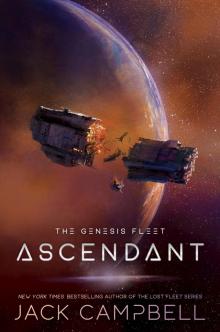 Ascendant
Ascendant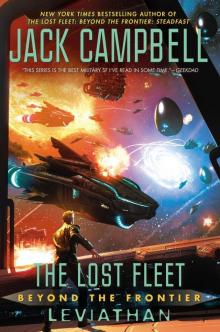 Leviathan
Leviathan Fearless
Fearless Shattered Spear
Shattered Spear The Pirates of Pacta Servanda
The Pirates of Pacta Servanda The Sister Paradox
The Sister Paradox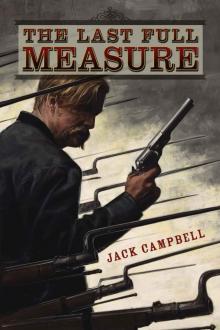 The Last Full Measure
The Last Full Measure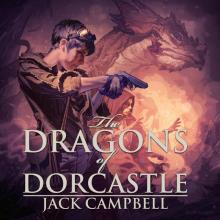 The Dragons of Dorcastle
The Dragons of Dorcastle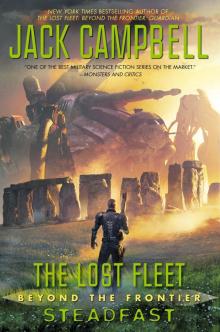 Dreadnaught
Dreadnaught Swords and Saddles
Swords and Saddles The Hidden Masters of Marandur
The Hidden Masters of Marandur Relentless
Relentless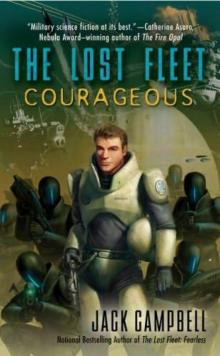 Courageous
Courageous Ad Astra
Ad Astra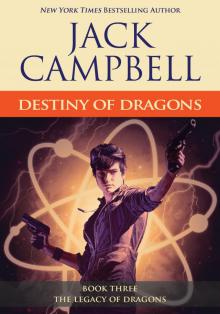 Destiny of Dragons
Destiny of Dragons Borrowed Time
Borrowed Time Dauntless
Dauntless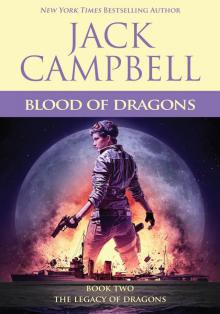 Blood of Dragons
Blood of Dragons Perilous Shield
Perilous Shield The Assassins of Altis
The Assassins of Altis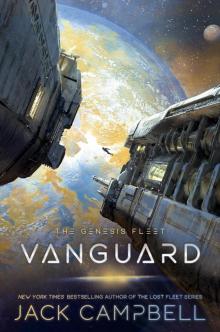 Vanguard
Vanguard Pirate of the Prophecy
Pirate of the Prophecy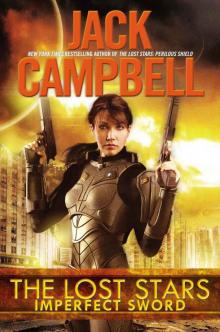 Imperfect Sword
Imperfect Sword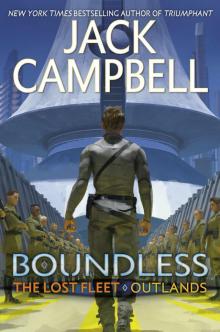 Boundless
Boundless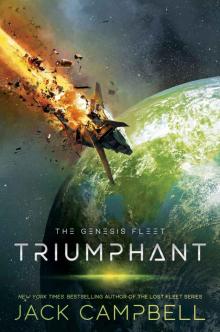 Triumphant
Triumphant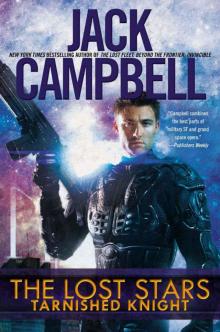 Tarnished Knight
Tarnished Knight Daughter of Dragons
Daughter of Dragons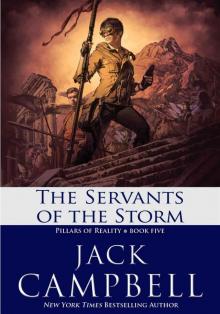 The Servants of the Storm
The Servants of the Storm Steadfast
Steadfast Fate of the Free Lands
Fate of the Free Lands Explorer of the Endless Sea
Explorer of the Endless Sea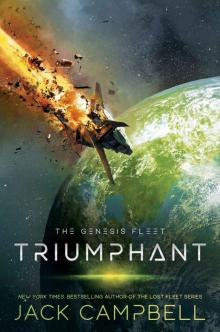 Triumphant (Genesis Fleet, The)
Triumphant (Genesis Fleet, The)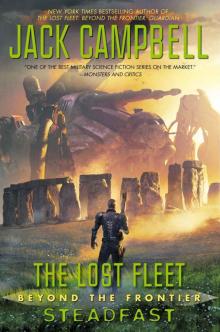 The Lost Fleet: Beyond the Frontier: Steadfast
The Lost Fleet: Beyond the Frontier: Steadfast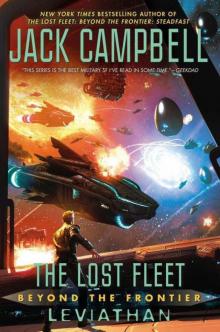 The Lost Fleet: Beyond the Frontier: Leviathan
The Lost Fleet: Beyond the Frontier: Leviathan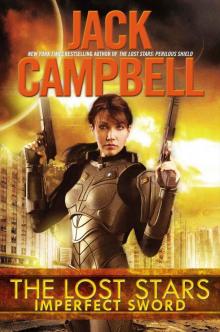 The Lost Stars: Imperfect Sword
The Lost Stars: Imperfect Sword Dreadnaught tlfbtf-1
Dreadnaught tlfbtf-1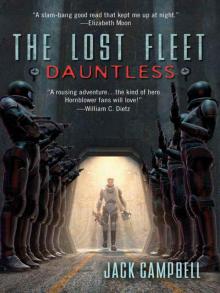 The Lost Fleet: Dauntless
The Lost Fleet: Dauntless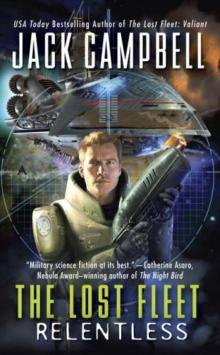 Relentless tlf-5
Relentless tlf-5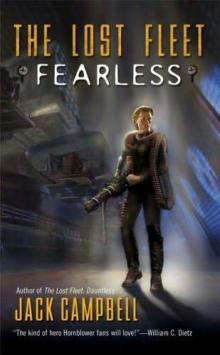 Lost Fleet 2 - Fearless
Lost Fleet 2 - Fearless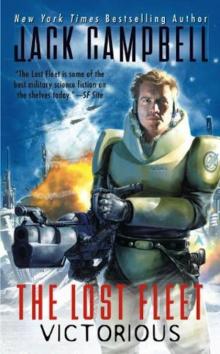 Victorious tlf-6
Victorious tlf-6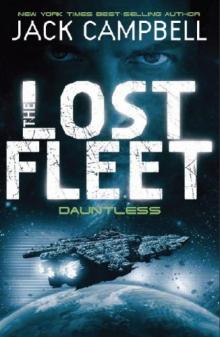 Dauntless tlf-1
Dauntless tlf-1 The Pirates of Pacta Servanda (Pillars of Reality Book 4)
The Pirates of Pacta Servanda (Pillars of Reality Book 4)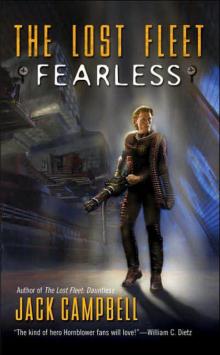 Fearless tlf-2
Fearless tlf-2 The Lost Stars: Perilous Shield tls-2
The Lost Stars: Perilous Shield tls-2 Lost Fleet 5 - Relentless
Lost Fleet 5 - Relentless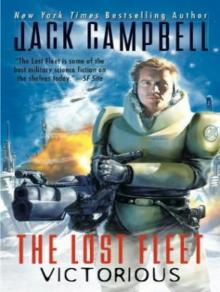 Lost Fleet 6 - Victorious
Lost Fleet 6 - Victorious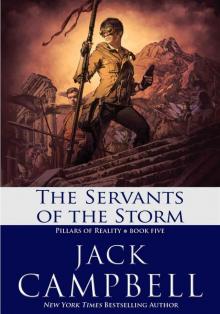 Pillars of Reality 5- The Servants of the Storm
Pillars of Reality 5- The Servants of the Storm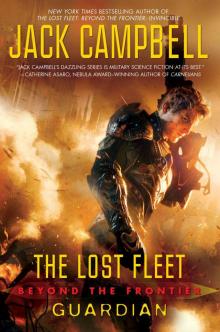 The Lost Fleet: Beyond the Frontier: Guardian
The Lost Fleet: Beyond the Frontier: Guardian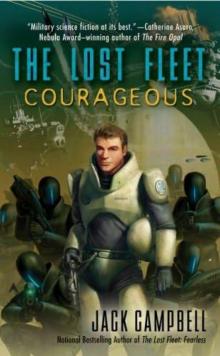 Lost Fleet 3 -Courageous
Lost Fleet 3 -Courageous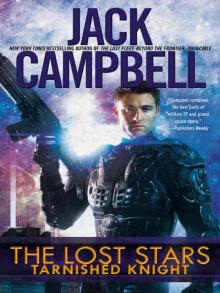 The Lost Stars: Tarnished Knight
The Lost Stars: Tarnished Knight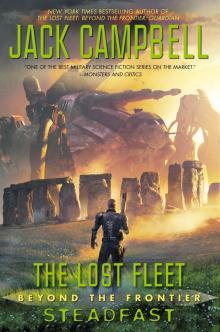 Beyond the Frontier: Steadfast
Beyond the Frontier: Steadfast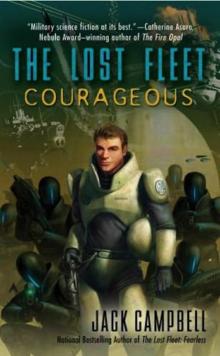 Courageous tlf-3
Courageous tlf-3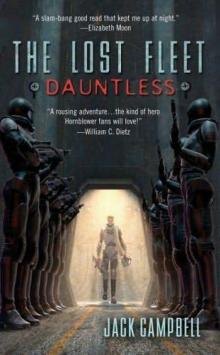 Lost Fleet 1 - Dauntless
Lost Fleet 1 - Dauntless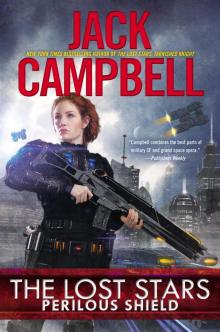 The Lost Stars
The Lost Stars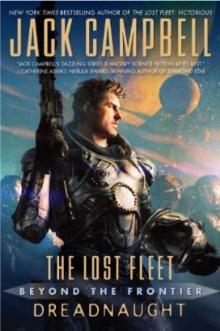 The Lost Fleet: Beyond the Frontier: Dreadnaught
The Lost Fleet: Beyond the Frontier: Dreadnaught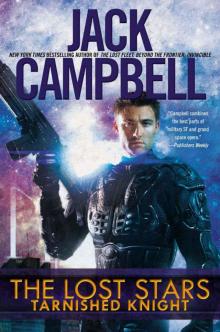 The Lost Stars 01-Tarnished Knight
The Lost Stars 01-Tarnished Knight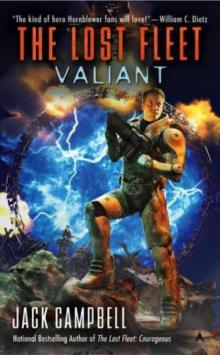 Valiant tlf-4
Valiant tlf-4 The Wrath of the Great Guilds (The Pillars of Reality Book 6)
The Wrath of the Great Guilds (The Pillars of Reality Book 6)